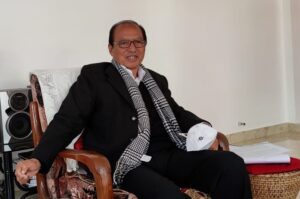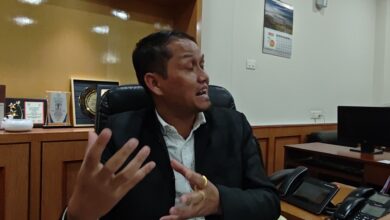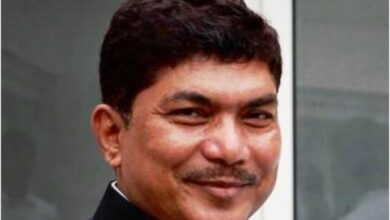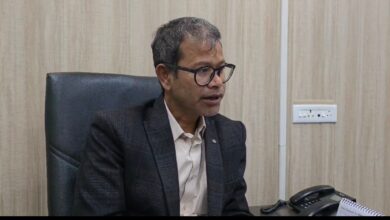Meghalaya’s 50 years of statehood & some broken dreams
Two volunteers of the movement share stories of struggles & rue the corruption & misrule in state that its stunted growth

On January 21, Meghalaya will celebrate its 50th anniversary of statehood. Over five decades, the state has achieved several medals to flaunt, and yet it could not live up to the dreams of the Hill State Movement leaders. Corruption, misgovernance and gradual decadence have stunted its growth path, leading to a socio-economic crisis.
As the current state government beats the drum for the year-long celebrations, one wonders whether revelry should be replaced by introspection. There is also a need for giving due respect to those grassroots workers who made Meghalaya a reality.
The statehood movement had over 3,000 volunteers who were trained to become resilient and non-violent. Inspired by Mahatma Gandhi’s satyagraha, or non-violent movement, the leaders of the movement ensured that each volunteer was prepared for any adversity. Mawkhar, Mawlai football ground, Laitumkhrah playground and Malki ground were some of the localities in the city which turned into hotbeds of dissention.
Meghalaya was formed without bloodshed, a unique achievement in history. None of the volunteers or statehood fighters resorted to violence during the movement. This 50th anniversary is also a celebration of the devotion and determination of all those who were part of the struggle.
Sunday Monitor got into conversation with two volunteers residing in the city and tried to find out more about the movement. They also shared their views about the current state of affairs and what they expect from the young politicians of Meghalaya.
Hoping Stone’s close aide
Denis Lyngkhoi remembers that there were over 3,000 volunteers who helped prominent leaders achieve the dream of statehood. He also remembers the torture of the Assam police that killed several fellow volunteers. But at 74 and suffering from herpes, recollecting events of 50 years ago is an arduous task for Lyngkhoi.
One of the left branches of the highway to Guwahati leads to Mawlai Umthlong. “Ask anyone the direction of Bah

Denis’ house and he/she will show you,” was how Felso Jarain, the youngest son of the Hill State Movement volunteer, described the route from the highway.
Indeed, everyone knew ‘Bah Denis’.
‘Phi wad ka iing i Bah Denis (Are you looking for Bah Denis’ house)? Go straight and you will find,” the shop owners in the locality said. Finally, Sunday Monitor found the house, a humble two-storeyed concrete structure.
Lyngkhoi’s room is downstairs. There is not many furniture in the living room. To the left is his room, partitioned by plywood that almost hides his son’s reading room.
Lyngkhoi has been bed-ridden since 2018. As the journalists introduced themselves, Lyngkhoi asked his son to help him sit up. He admitted that his Hindi was “atrocious” and he “cannot speak English”.
“Bring a Khasi friend to translate my story,” he said with much difficulty.
He seemed at ease when Sunday Monitor assured him that his story would be told despite the language barrier. He asked his son to take out the uniform that volunteers of the statehood movement wore. “This uniform is from 1968. I was in Assam jail for six months. The police beat us black and blue,” said Lyngkhoi in broken Hindi and kissed the slate grey uniform. He was only 20 when he joined the statehood movement.
Lyngkhoi witnessed violence by the Assam police. He still remembers how one of his friends from his village, Marshillong, in Mawkyrwat (now in South West Khasi Hills district) was killed.
“The policeman slapped him across the ear and kicked him in the ribs. When he was taken to the jail, he was already dead,” narrated Lyngkhoi, who was a close aide of Hoping Stone Lyngdoh, the illustrious leader from West Khasi Hills.
After Meghalaya became an independent state, Lyngkhoi got a job in the Khasi Hills Autonomous District Council. He is not eligible for pension as he was a contractual worker. Though the family has the state healthcare card, there was no help from the state government when the former volunteer of the statehood movement was struggling.
“All volunteers were promised jobs after statehood. But we did not get. No one came to us,” said Lyngkhoi. He looked weaker than before. The long conversation was taking a toll and he lied down.
Felso and his elder sister Dariti Jarain take care of Lyngkhoi with help from relatives. While 18-year-old Felso is still in high school, 22-year-old Dariti is planning to start college this year.
Pledge of non-violence

Loscan Roy Lyngdoh was in the first batch of volunteers who were inducted into the hill state movement. He recollected how the youth of the hill tribes — Khasi, Garo and Jaintia — were trained to face the atrocities unleashed by the Assam police. “We were trained to be mentally and physically strong to face lathicharge and other forms of torture. Many locations in the city were the volunteers’ training grounds,” he said.
It was the Mahatma’s teachings of non-violence which inspired a large section of hill tribe youths to fight the high-handedness of the government of undivided Assam. On September 10, 1968, volunteers and statehood leaders barged into the Secretariat building of the Assam government, now the citadel of power in Meghalaya, and courted arrest through the process of non-violent direct action. “The 50th year of this event was not recognised in 2018. In fact, there should be a monument commemorating the sacrifices of all the volunteers,” he rued.
Lyngdoh also remembered the rift among the movement leaders that led to the formation of the Hill State People’s Democratic Party, or HSPDP. “It was sad. Two years later, Meghalaya was declared a full-fledged state,” he added.
Five decades on, the state has failed to achieve what it was expected to and this is owing to corruption and misrule, said Lyngdoh. “I would not say that our struggles went in vain. But the poor in the state have received little from the achievement. That pains me,” he added.
According to Lyngdoh, the future of the state rests in the hands of the present political leaders who will be responsible to direct the new generation towards a new dawn. “This 50th year is the time for the state leaders to take the pledge of clean governance and achieve what the state deserves,” he said.
~ Team Sunday Monitor
Photos by MM




